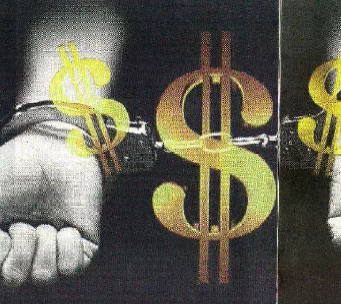RELIGIOUS AND CULTURAL VALUES: No person or persons can or should be allowed to pervert the system
AS if the country’s reputation needed any more battering, media coverage of a female Malaysian student in Australia charged with allegedly spending millions from an erroneously-given bank overdraft made world headlines.
This incident was just the latest to reinforce what may be an emerging stereotype that we, as a nation, are not honest, moral or trustworthy. For a country that prizes its religious and cultural values, this is a national tragedy, assuming that is true. Of course, we can deny it, claiming it to be a misunderstanding or conspiracy against us. Why the
mix-ups arose in the first place and why conspirators would bother remain key unanswered questions. Or, we could point to the sins of others. Since we are not alone in these matters and others seem to be much worse, we ought to be excused.
We may still go to hell in a barrel but at least we will have good company. If all else fails, we could always admit that there is substance to the allegations but that remedial policies and measures are being taken. We then have the ability to buy time, change course or even backtrack when no one is looking. There are a few ways to fudge the issue and delay the consequences of dishonesty and untrustworthiness.
The question is whether these can be kept at bay forever. The answer is given time and again when countries experience a breakdown of morality and trust. Financial institutions will not lend to them. Investors will demand high rates of return. Real interest rates stay high. The law is supposed to prevent abuses of power, by private property owners, the state or its leaders, creating order out of chaos.
But there are laws and there are laws. A country that wants to get ahead will be in constant motion, chucking out the bad and improving the average. For a country to adhere to the rule of law, it is not enough for bookshelves of statutes to be filled to overflowing. Those tasked with interpreting the law and those entrusted with enforcing it must do their
jobs. Since corruption is not exclusively an attribute of other people -it is inherent in human nature -we have to be resolute in preventing those who would subvert the operation of the law and, therefore, justice.
No person or persons, no matter how powerful, can or should be allowed to pervert the system. Any attempt should be met with the most determined and punitive response. Not to do so makes a mockery of the claim to be a nation based on the rule o flaws.
What we need are stronger legal and social sanctions against acts of dishonesty and untrustworthiness. The best functioning set of laws, however, do not produce stunning economic results.
They set the boundaries that must not be crossed and the penalties that will be incurred if they are. They do not encourage much needed constructive and innovative behaviour. Economists have long known that markets and state institutions are not sufficient to produce the best results.
Quite apart from profits, wages and bonuses, there must be social incentives for good conduct and penalties for bad ones. If corruption is not acted against in an economy, it is de facto an encouragement to practise it. Those who are moral, or who do not have the opportunity for corruption, will fall into the bottom half of society. Integrity, thus, becomes a liability rather than an asset. The same holds true for honesty and trustworthiness. Evolutionary psychologists will say that these are not purely altruistic individual attributes but requirements for a growing and thriving community.
The answer to producing more moral behaviour does not just lie in more knowledge, whether religious or civic. We know from the state of countries that this is not sufficient. What we need are stronger legal and social sanctions against acts of dishonesty and untrustworthiness. It should not have to be as extreme as in China, where corrupt officials are executed, but the line has
to be drawn. Many Malaysians are impressed with expensive cars, houses, holidays and handbags, no matter how they are acquired.
More are desperate to join the ranks of the rich, even if it means becoming infamous. This has to change if we are to start on the road to recovery of our national pride.
Article by Dato’ Steven Wong which appeared in New Straits Times, May 10, 2016.





